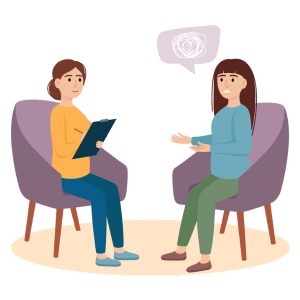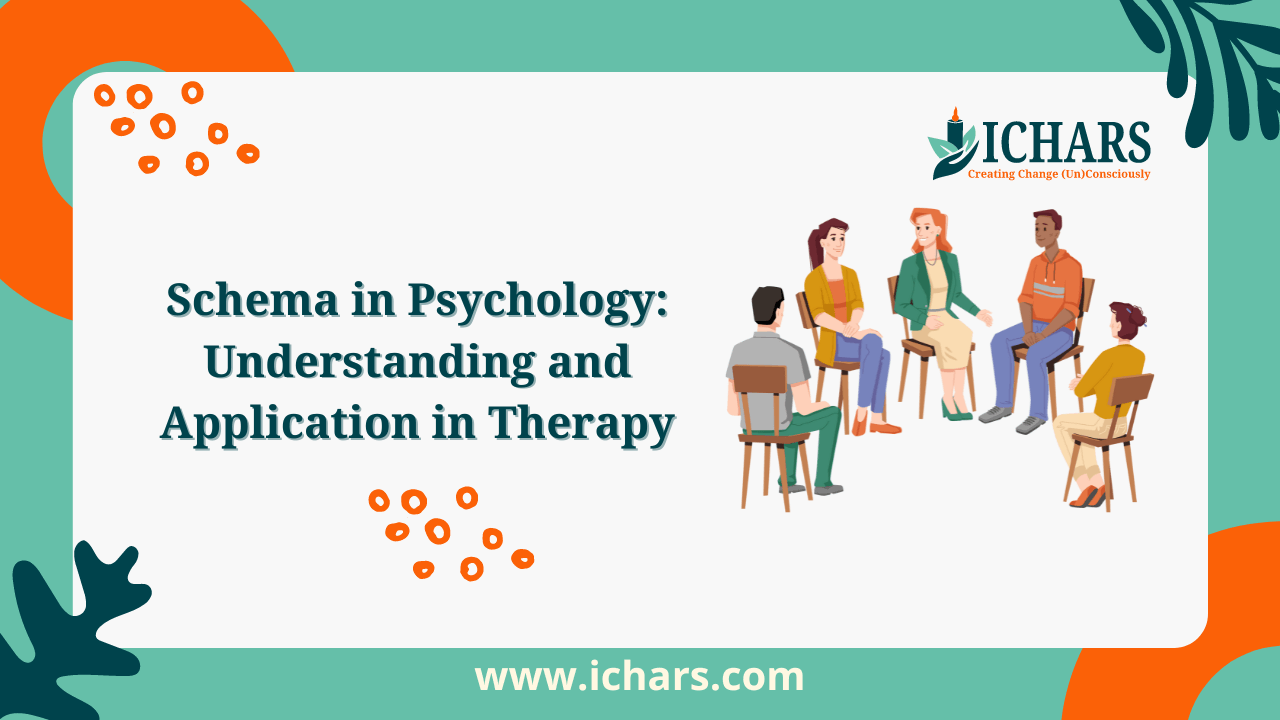The concept of schema in psychology has deep roots, originating with Jean Piaget’s pioneering work in cognitive development. Piaget defined schemas as mental structures that organize knowledge and guide understanding of the world. Later, Aaron Beck expanded on this concept within cognitive therapy, highlighting schemas as core beliefs influencing emotional responses and behaviour patterns.
Introduction to Schemas in Psychotherapy

Schemas are foundational cognitive structures in psychotherapy, shaping how individuals perceive, interpret, and respond to their environment.
Formed early in life, these ingrained patterns of thoughts, beliefs, and behaviours profoundly influence personal identity and interpersonal interactions throughout adulthood.
Types of Schema in Psychology Explored
Core Schemas: These fundamental beliefs about oneself, others, and the world are deeply ingrained and resistant to change without targeted intervention. For example:
- Abandonment Schema: Expecting significant others to leave or not provide needed support.
- Mistrust Schema: Belief that others are untrustworthy or will betray one’s confidence.
- Failure Schema: Conviction of inherent inadequacy or inability to succeed despite efforts.
Maladaptive Schemas: These dysfunctional patterns perpetuate distress and impair daily functioning. Common examples include:
- Emotional Deprivation Schema: Feeling chronically deprived of love or emotional support.
- Self-Sacrifice Schema: Prioritizing others’ needs over personal well-being.
- Entitlement Schema: Expecting special treatment without effort or merit.
Cognitive Distortion vs. Schema in Psychology: Clarifying the Difference
Cognitive distortions are irrational or biased ways of thinking that intensify negative emotions and behaviours. They often derive from underlying schemas, which form the foundation for distorted perceptions.
For example, someone with a “defectiveness” schema might interpret constructive criticism as proof of personal inadequacy, leading to feelings of worthlessness. Addressing both cognitive distortions and underlying schemas is crucial in therapy to foster accurate perception and emotional resilience.
Schemas and Mental Maps in NLP: Parallel Perspectives
In Neuro-Linguistic Programming (NLP), schemas are akin to mental maps – internal representations guiding perception and behaviour. While schema in psychology focus on core beliefs and emotional responses, NLP mental maps emphasize sensory-based representations of experiences.
Both concepts underscore the pivotal role of internal cognitive structures in shaping external reality, offering therapists diverse tools for cognitive restructuring and enhancing client resilience.
Exploring and Addressing Schemas in Therapy
Helping clients explore and identify how schemas contribute to their challenges is essential for effective therapy. Therapists can facilitate this process through:
1. Exploration
- Clinical Interviews: Engage clients in open-ended discussions to uncover recurring themes, beliefs, and interpretations influencing their thoughts and behaviours.
- Questionnaires: Utilize schema-focused assessments like the Young Schema Questionnaire (YSQ) to identify core and maladaptive schemas prevalent in clients.
2. Identifying Contributions
- Pattern Recognition: Assist clients in recognizing how recurrent themes and beliefs manifest in various life domains, contributing to emotional distress or interpersonal difficulties.
- Behavioural Analysis: Evaluate behavioural patterns and responses to triggers to discern schema-driven reactions and their impact on daily functioning.
- Cognitive Restructuring: Challenge and reframe maladaptive schemas through guided inquiry and evidence-based reasoning. Help clients develop alternative, more adaptive beliefs.
- Behavioural Experiments: Design structured activities to test new beliefs and behaviours in real-life situations, validating their efficacy and promoting schema modification.
- Experiential Techniques: Incorporate imagery rescripting, role-playing, or gestalt techniques to evoke emotional responses and facilitate corrective experiences.
- Mindfulness and Acceptance: Foster non-judgmental awareness of schema-driven thoughts and emotions, promoting self-compassion and reducing reactivity.
Enhancing Schema Therapy with Cognitive Hypnotic Psychotherapy (CHP)
Cognitive Hypnotic Psychotherapy (CHP) enriches schema therapy by integrating cognitive, behavioural, and hypnotic techniques:

- Hypnotic Regression: Uses hypnosis to access early memories shaping schema formation, facilitating deep reprocessing and belief restructuring.
- Imagery Rescripting: Combines hypnosis with cognitive restructuring to create new, adaptive memories countering emotional impacts of traumatic experiences linked to schemas.
- Metaphorical Storytelling: Leverages metaphors during hypnosis to impart new insights on schema-related beliefs, fostering transformative shifts in perception and behaviour.
- Reframing through Hypnosis: By presenting alternative interpretations of past experiences or beliefs, therapists can help clients reframe their perspectives while in a state of heightened suggestibility.
- Suggestion Therapy: Positive suggestions are used to encourage changes in attitudes, perceptions, and behaviours that directly address maladaptive schemas and cognitive distortions.
- Future Pacing: This technique projects clients into future scenarios where they can visualize and emotionally connect with outcomes that arise from healthier cognitive patterns.
Conclusion: Harnessing Schema Therapy for Effective Psychotherapeutic Practice
Understanding and working with schemas is crucial for psychologists seeking to deepen their therapeutic practice and enhance client outcomes. By identifying, exploring, and modifying these deep-seated cognitive frameworks, therapists can address the root causes of emotional distress and maladaptive behaviours.
Integrating schema therapy with Cognitive Hypnotic Psychotherapy (CHP) provides a powerful, comprehensive approach to facilitate profound changes in clients’ belief systems. Our comprehensive diploma in Cognitive Hypnotic Psychotherapy equips practitioners with advanced skills to effectively work with schemas, enhancing therapeutic effectiveness and client satisfaction.

